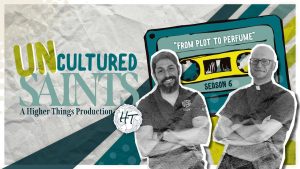From the Pastor – January 2025
“In the beginning was the Word, and the Word was with God, and the Word was God. He was in the beginning with God. All things were made through him, and without him was not anything made that was made. And the Word became flesh and dwelt among us, and we have seen his glory, glory as of the only Son from the Father, full of grace and truth.”—John 1:1-3, 14
It is our Lord who comes to us. It is not the other way around; it is never the other way around. Our sinful flesh always wants to make it that other way. We want to climb the ladder, pray the prayer, do the work. We want to be the one in control of it all; of our “getting right” with God. We want to ascend into the heavens in a spiritual renewal that sounds great and wonderful and fulfilling; and yet it is all a silly pipe dream. One made even worse due to the fact that it comes from the lips of Satan into our sinful ears and we accept it so willingly.
We just celebrated God coming to us in the flesh, we call it the Incarnation. This is what Christmas is all about. God did not lock Himself away from His fallen world, but He remained steadfast and true to the promise He rendered all the way back in Genesis chapter 3. His Incarnation means something much more than a pretty little Christmas card with a Hallmark picture of the manger scene. God came into our flesh to lead the perfect life that we could not. He came into our flesh to bear our sin because we could not. He came into the world to take all of that sin and the shame, grief, pain, guilt, and suffering that comes with it, nail it to the cross, and rise victorious over it for us once and for all. … This is why God came into the world; came to us. He had to, because in our sinful state, we could not come to Him.
Epiphany is about to begin. And it is here we celebrate the fact that Jesus came (and still comes) for all people. He is not just the God of the Jew but for the Gentile as well. This is the message that we proclaim to the world; that God is for them just as He is for you. But as we proclaim this message, we do not just talk about the fact that Jesus did something in the past. It isn’t as if His part is done and now it is up to us to come to Him. He still comes to us. He still comes to the world.
To paraphrase Martin Luther, when we are troubled by our sin and tempted by the devil we do not go to the cross for the forgiveness of sins. The cross is where Christ won the forgiveness of sins but that is not where He gives that forgiveness. He gives forgiveness when He comes to us in our daily lives. He gives that forgiveness in His Word, in His Baptism, in His Holy Supper. This is how our Lord comes to us. Not in some magical mystical way, but in a way in which we can hear, feel, taste, and see. That is why at the end of every Divine Service we sing the song of Simeon. God has once again come to us and, “[our] eyes have seen [His] salvation that [He has] prepared in the presence of all peoples, a light for revelation to the Gentiles, and for glory to [His] people Israel.” (Luke 2:30-32)
This is what the Church proclaims not only during the season of Epiphany but throughout the whole year. Our God is for all people. And He came, comes, and will come again to us!
In the Name of Jesus,
Rev. Eli Lietzau




